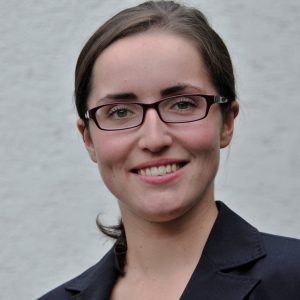
Maria Gerullis is doctoral candidate in agricultural economics at the chair of Agricultural and Economic Policy at University of Bonn dealing with crop genetic resources and how they are being governed as social-ecological systems of actors in plant breeding, research, seed multiplication and farming. Method wise Maria’s work spans from ethnographic field work, agent-based modelling to econometrics. She worked at Technical University of Munich and in agricultural extension services for food waste prevention before joining Bonn’s DFG Excellence Cluster PhenoRob for her PhD.
Mission oriented governance of research centers around inspirational, yet attainable goals and targets the sustainable development goals (SDGs) through innovation pathways. The transformation from current into sustainable agricultural systems requires improved crop varieties and management practices. Speedy success in this respect is vital to lower the use of chemical fertilizers and pesticides, increase crop resilience to climate stress and reduce postharvest losses. A key question is how this success may come about? So far plant breeding research has ignored wider social systems feedbacks, but governance also failed to deliver a set of holistic breeding goals providing directionality and organization. To address these challenges, we propose a heuristic illustrating the core elements needed for governing plant breeding research: Genetics, Environment, Management and Social system (GxExMxS) are the core elements for defining future breeding goals. We illustrate this based on historic cases and in context of current developments in plant phenotyping technologies and derive implications for governing research infrastructures and breeding programs. We deem long-term investments into human resources and experimental set-ups for agricultural systems necessary to ensure a symbiotic relationship for private and public breeding actors and recommend fostering collaboration between social and natural sciences for working towards transdisciplinarily developed breeding targets.
Maria Gerullis1, Roland Pieruschka2, Sven Fahrner2, Lorenz Hartl3, Ulrich Schurr2, Thomas Heckelei1
1 – University of Bonn
2 – Forschungszentrum Jülich
3 – Bavarian Agricultural Research Center
MG would like to thank Yoko Kusonose, whose helped in developing this work in an early stage and Hubert Kempf, who over the years served as a tutor in matters of applied breeding. This study was partially funded by the Deutsche Forschungsgemeinschaft (DFG, German Research Foundation) under Germany’s Excellence Strategy – EXC 2070 – 390732324- PhenoRob.